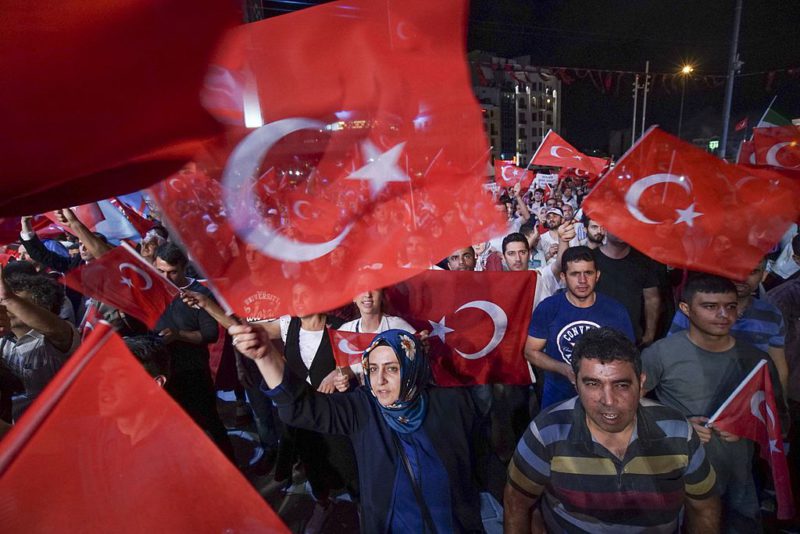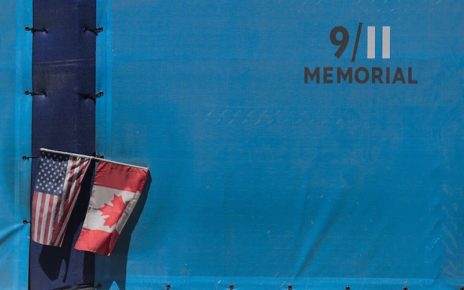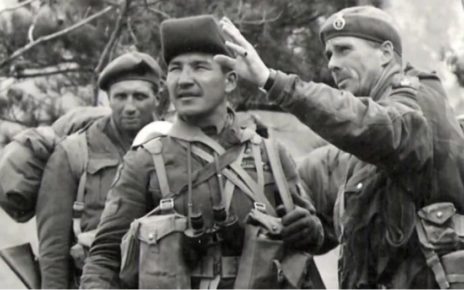Turkey is often seen as a country of two worlds. A land caught between tradition and modernity, a bridge between the East and West. Now, in 2017, it appears the country is wedged between a future of democracy or authoritarianism. Only a few years ago, Turkey was a confident strategic ally of Western partners in NATO that employed far-reaching reforms to achieve the conditions of presumed EU membership, and was engaged in ambitious external trade policies and diplomacy while moving proactively towards a Kurdish peace process. Today, things are much different. Amid a wave of terror attacks and a furious crackdown on an array of perceived enemies from the military to civil society, President Recep Tayyip Erdoğan is presenting a new package of constitutional amendments that would place all executive power in his hands. Erdoğan claims this deal is the only way to provide stability among the disorder. In reality, the further centralization of power and decision-making into his hands will only exacerbate the country’s woes and strain relations with traditional allies.
This January, Turkey’s parliament voted 339-142 to adopt a package of 18 amendments that would make the country’s president the head of the executive while abolishing the job of prime minister. The proposal is slated for a national referendum in April that would put President Erdoğan in a position of power unrivaled since the days of Mustafa Kemal Ataturk, the country’s parliamentary founder. He would manage his own cabinet, appointing officials without parliamentary approval; he also could issue decrees with the force of law and unilaterally declare a state of emergency. If approved, the amendments would begin after the 2019 presidential elections, theoretically allowing Erdoğan to remain in power for two more election cycles until 2029. Turkish officials say the changes will allow for greater government oversight and speed up decision-making. Closer scrutiny sees elements that would move Turkey away from a pluralist, democratic state of law and transform it into a majoritarian authoritarian system.
President Erdoğan has been seeking to empower his largely ceremonial post since he was elected in 2014 after serving as the country’s prime minister for over a decade. In that time, he has infused the country’s political and education systems with rigidly conservative Islam and shown little mercy for opponents or minority groups. Now he has been able to seize upon a chaotic time in the country, following a period marked by economic volatility, an attempted coup, and heightened conflict with Kurdish separatists and terror groups. In the aftermath of the failed July coup by Turkey’s Armed Forces, democratic rights such as free speech and the right to public demonstration have been eroded under the guise of security. Under a state of emergency in force since July, the government has arrested, fired or suspended more than 130,000 people from the military, opposition groups, civil service and the judiciary. Academics and teachers have lost their jobs, with dozens of leading media outlets being shut down, while over 150 journalists and dozens of opposition party members remain in jail. Emergency law has removed most of the remaining checks on Erdoğan’s power, and the proposed constitutional changes would make this situation permanent.
Freedoms are being systematically stripped away, and Ankara looks to a wave of terror attacks carried out across the country to legitimize its authoritative crackdowns. Turkey has suffered 33 major terror attacks since summer 2015, carried out largely by ISIL and Kurdish militant groups such as the PKK. In December alone, Kurdish militants killed 58 people in terror attacks; the country entered 2017 with a similarly devastating event when an ISIL-claimed attack at an Istanbul nightclub killed 39 people. In a period of deep instability, Erdoğan argues that Turkey needs a leader unrestrained by bureaucratic checks and balances to help secure the country against its enemies.
Turkish officials present the constitutional proposal as the only solution to Turkey’s problems, but the move represents an assault on the country’s democratic foundations and will bring further destabilization. Erdoğan’s strategy has escalated political polarization in Turkey; while his base view his authoritarianism as reassuring, other groups including secularists, liberals, and Kurds increasingly resent his assault on the country’s institutions. The country is torn and these groups are finding increasingly little common ground. Each new PKK or ISIL attack, for instance, drives a deeper divide into Turkish society. The pro-government bloc blames opposition groups for PKK attacks, while opposition groups blame the government for ISIL attacks. In December, following a PKK attack which killed 14 people, pro-government mobs firebombed branches of the pro-Kurdish HDP party across Turkey. Similarly, following a July 2015 attack by ISIL, violent protestors blamed the government for failing to stop it.
Amid the government’s systematic crackdowns, it seems almost inevitable that conflict will further intensify if Erdoğan succeeds in April. The government discontinued peace talks with the PKK in 2015, opting instead for a bloody and misguided military offensive. Turkey’s growing collaboration with Russia and Bashar Al-Assad in Syria, where Ankara began fighting ISIL last August, will also make the country more vulnerable to extremist attacks by ISIL or similar groups. Erdoğan’s anti-terror campaign is not working, and if unrestrained as an executive president, he will likely only double-down on this strategy. If his government becomes increasingly autocratic, fanning the flames of grievance and nationalism, it will exacerbate the conditions of political division and escalate armed-conflict.
Erdoğan’s strategies have widened Turkey’s divide with Western partners. Turkey remains a critical NATO ally in a tumultuous region, and its March 2016 migration deal with the EU has helped reduce the flow of refugees to Europe. Yet tensions are flaring. In November, the European parliament suspended negotiations on Ankara’s EU accession process in response to Ankara’s crackdowns. For his part, Erdoğan has accused the West of supporting terrorism, threatened to flood Europe with refugees, and openly mused about joining the Shanghai Five (a union of autocratic states including Russia and China). He sees a double standard in the West’s reaction to Turkey’s strategy, and is pulling away from NATO allies, moving closer to Vladimir Putin’s Russia.
If the referendum succeeds, doubts will surge on whether Turkey can be a reliable NATO partner and strategic ally. Ankara’s post-coup purge of its military, which is the second largest force in NATO, has further weakened its strategic preparedness, and Turkish officials have recently questioned whether the U.S. will be allowed to maintain access to its critical Incirlik Air Force base. It will also push the American military to end its cooperation with Kurdish fighters in Syria, a key ally in the fight against ISIL, escalating conflicts with these groups. It would be imprudent to suggest Erdoğan will abandon NATO, but his increasingly unpredictable rhetoric and coziness to Russia could threaten European stability and will undermine the solidarity of the NATO alliance.
Turkish voters head to the polls in April for what will likely be the most significant political decision of their lives. Further steps towards authoritarian one-man rule will only accelerate Turkey’s downward democratic and security spiral, exacerbating domestic and regional tensions, while Erdoğan’s supplication to Russia will inevitably backfire. If voters reject the proposal that may press Turkey’s government to follow a path to the restoration of the rule of law, and a salvaging of democracy, achieved jointly with the reconfirmation of Turkey as a central ally and partner to the U.S. and other Western allies. The country is approaching what could be one of the sharpest turns in its democratic and constitutional history.
Cover Photo: Post-coup nightly demonstration of President Erdogan supporters (2016), by Mstyslav Chernov via Wikimedia. Listed under CC BY-SA 4.0.
Disclaimer: Any views or opinions expressed in articles are solely those of the authors and do not necessarily represent the views of the NATO Association of Canada.




